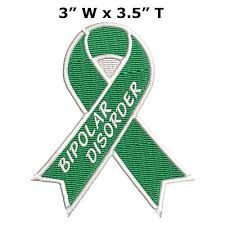First off there is a Hodgepodge post here:http://jamfn.blogspot.com/2025/01/its-hodgepodge-time.html
Now for today's post
This week we are looking at the treatment for bipolar disorder. There are two major parts to managing bipolar disorder: acute management and long-term management.
Treatment needs to be ongoing and
tailored for each person.
You also need to remember that treatment for bipolar disorder
needs to factor in any conditions you have such as anxiety or substance use
disorder. Other medical illnesses such as hypertension, obesity and thyroid
problems sometimes occur together with bipolar disorder.
Mental health practitioners need to work out your treatment
according to whether you’re experiencing hypomania, mania, depression or
euthymia (absence of depression or mania). A highly qualified mental health
practitioner needs to prescribe your treatment. Each person needs a treatment
plan tailored for their individual needs, as everyone with bipolar disorder
experiences it differently.
Do not try to self-medicate or develop your own treatment plan.
Acute management aims to stabilise someone currently
experiencing mania or depression.
Medications like mood stabilisers and antipsychotics are the
main focus of acute management of bipolar mania and depression.
Electroconvulsive therapy (ECT) can be effective for treatment-resistant acute
mood episodes, especially in people experiencing depression with psychotic
features.
Long-term management involves maintenance and prevention of
relapse, and optimised functional recovery socially and at
work. Medications and psychological and lifestyle approaches are aimed at
providing long-term prevention of relapse, building resilience, and improving
quality of life.
There are specially trained mental health professionals such as
psychiatrists and psychologists who can help you with bipolar disorder
You need a thorough check from a health professional before
treatment is prescribed and specially prescribed medication is the most
effective way to treat and manage bipolar disorder. However, psychological and
lifestyle therapies can be helpful additions to your treatment.
Some may experience ‘rapid cycling’ can go between depression
and mania a few times a week (some even cycle within the same day). While
others might have mood changes less often and less severely.
There are also some who can have very severe episodes of mania
with psychotic symptoms (hallucinating or delusions) and need hospitalisation.
Some people can experience normal moods in between their swings,
though the majority of individuals experience some low-level symptoms between
episodes.








This disorder can manifest in so many ways, I imagine it would be difficult for someone to diagnose it properly. Great info, Jo-Anne!
ReplyDeleteYeah I think it would be difficult to get a diagnoses in some cases
DeleteThank goodness there are drugs to help these people, Jo-Anne.
ReplyDeleteYes it is good that now days there is good treatment available and they are not tossed into some asylum and forgotten
DeleteSince everyone is completely different in their symptoms and severity, it must be very difficult to finally come up with a reasonable solution. So many factors must be taken into account.
ReplyDeleteYes I thought that as I wrote the post
DeleteThere are such extremes I'm sure it must be difficult to treat as everyone can be so different.
ReplyDeleteYes I think it would be difficult for some to get diagnosed and treated
DeleteYes I think it would be difficult for some to get diagnosed and treated
DeleteThose affected suffer greatly and need help.
ReplyDeleteYes they do and they don't need to be looked down on and treated differently
Delete